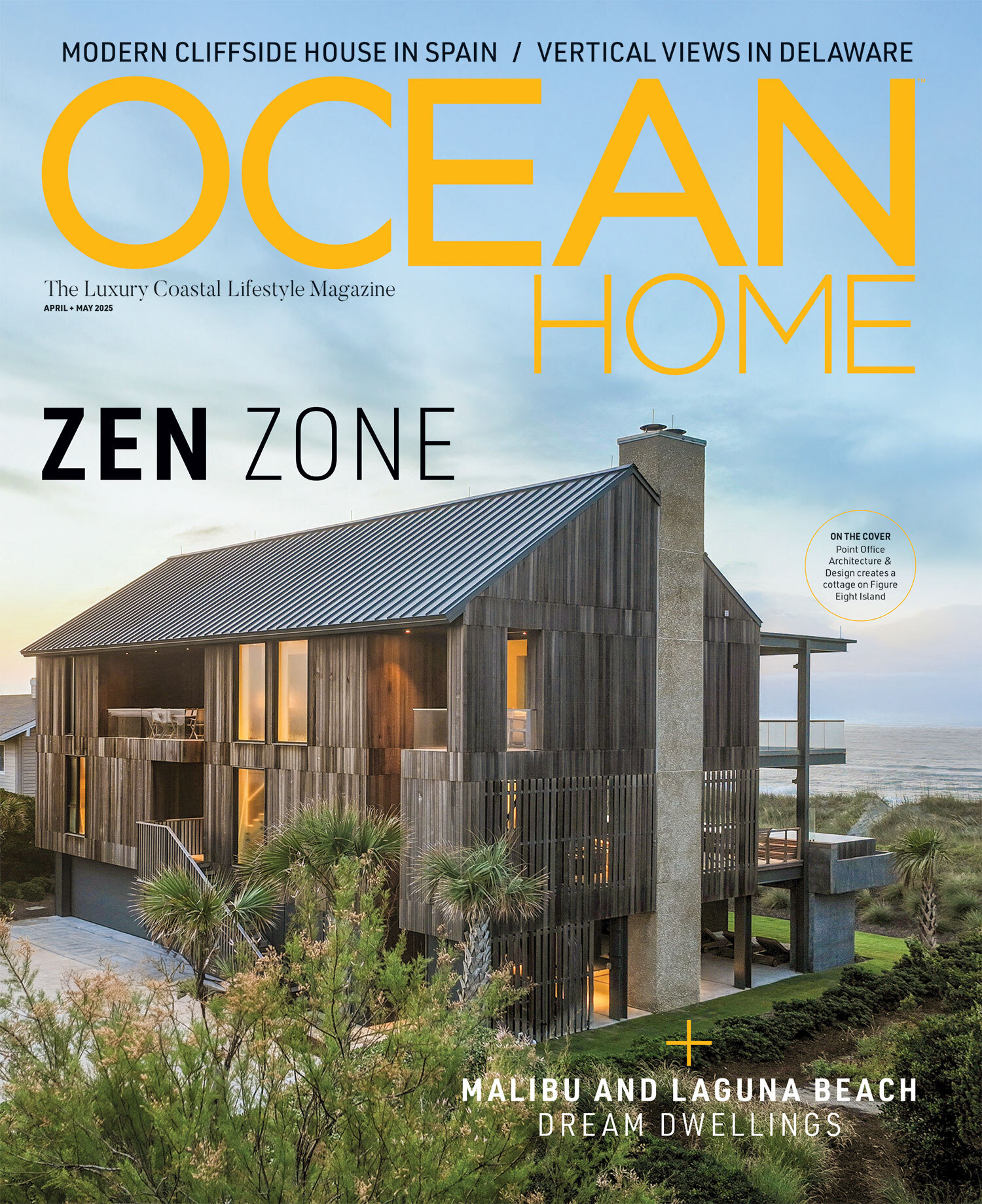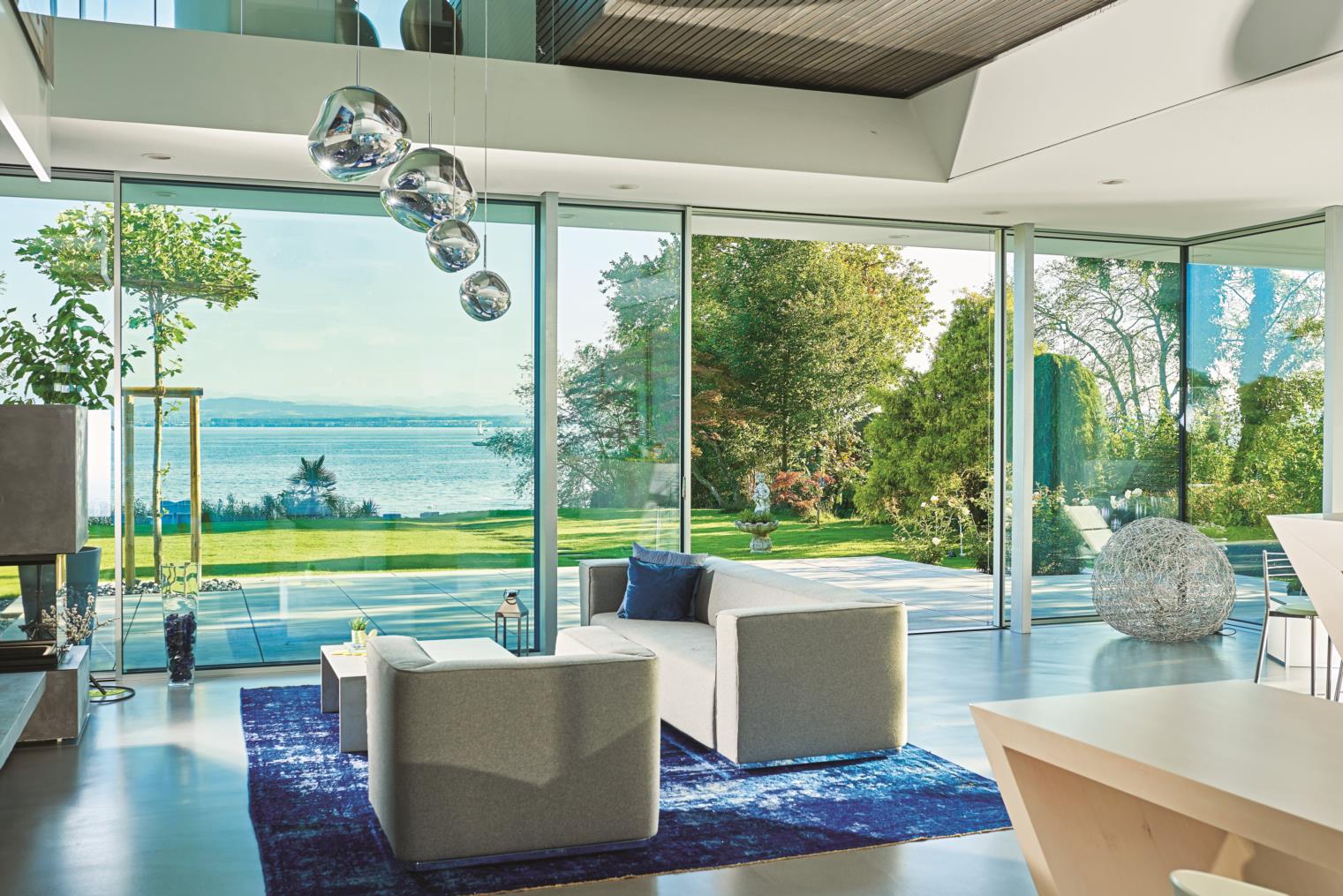Three decades ago, the concept of moveable wall systems made almost entirely of glass was largely a figment of the imagination. It wasn’t until the early 1990s that companies emerged touting the ability to create broad glass walls that not only featured minimally obstructive profiles but could also slide completely out of the
Today, those glass systems do way more than slide—they pivot, fold, tilt and turn. And the firms that design and build the systems in the most exclusive ocean homes are engineering the walls of windows and doors that allow for indoor-outdoor access like never before. Here’s how.
Case Window & Door
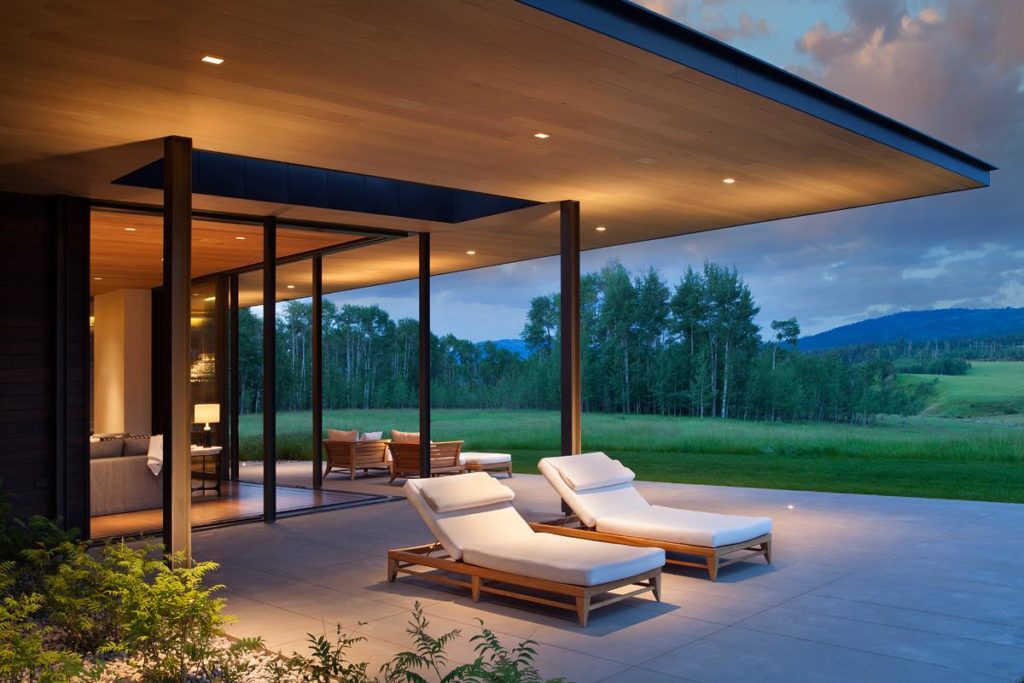
For 25 years, Case Window & Door has created bespoke windows and doors for upscale residences around the world. “We work with all types of materials and all types of windows and doors,” explains Russell Brooks, a partner in the company who oversees project development. “You can customize wood and metal and glass and stone, as well.
“Every project that I’m working on is looking for a beautiful wood door surrounded by glass walls,” he continues. “We build and integrate all of that, so it comes to you as a system.”
The upstate New York-based company assures that its windows are hurricane resistant, if necessary, testing them at certified laboratories around the country. And because it custom manufactures all of its products, Case Window & Door can create spectacular configurations, like a motorized system of five sliding glass panels, each one 8 feet wide and 12 feet high, that disappears into recessed pockets. “We’ll look at what an architect or designer has created and what the client has asked for, and we’ll engineer what it takes, if it’s possible,” Brooks says. “We’ll tell you whether or not it can be built, and we’ll do specific testing for that project.”
So much of the cost and challenge of creating expansive glass wall systems is rooted in the logistics of transporting—and subsequently installing—large pieces of glass that weigh multiple tons, which is why Case offers field installation services operated by the same technicians who manufacture the products. And even though the company works equally with wood and with metals, Brooks acknowledges that its metal offerings—aluminum clad, bronze clad, stainless steel, and structurally glazed steel—are growing more popular thanks to architects’ and designers’ preferred aesthetics. “The trend in the last decade has been to minimize the frames,” he says. “Architects have almost always preferred the thinnest frame lines possible, so that pushes them to metal because that’s the only way you get the strength in the frames.”
Dynamic Architectural Windows & Doors
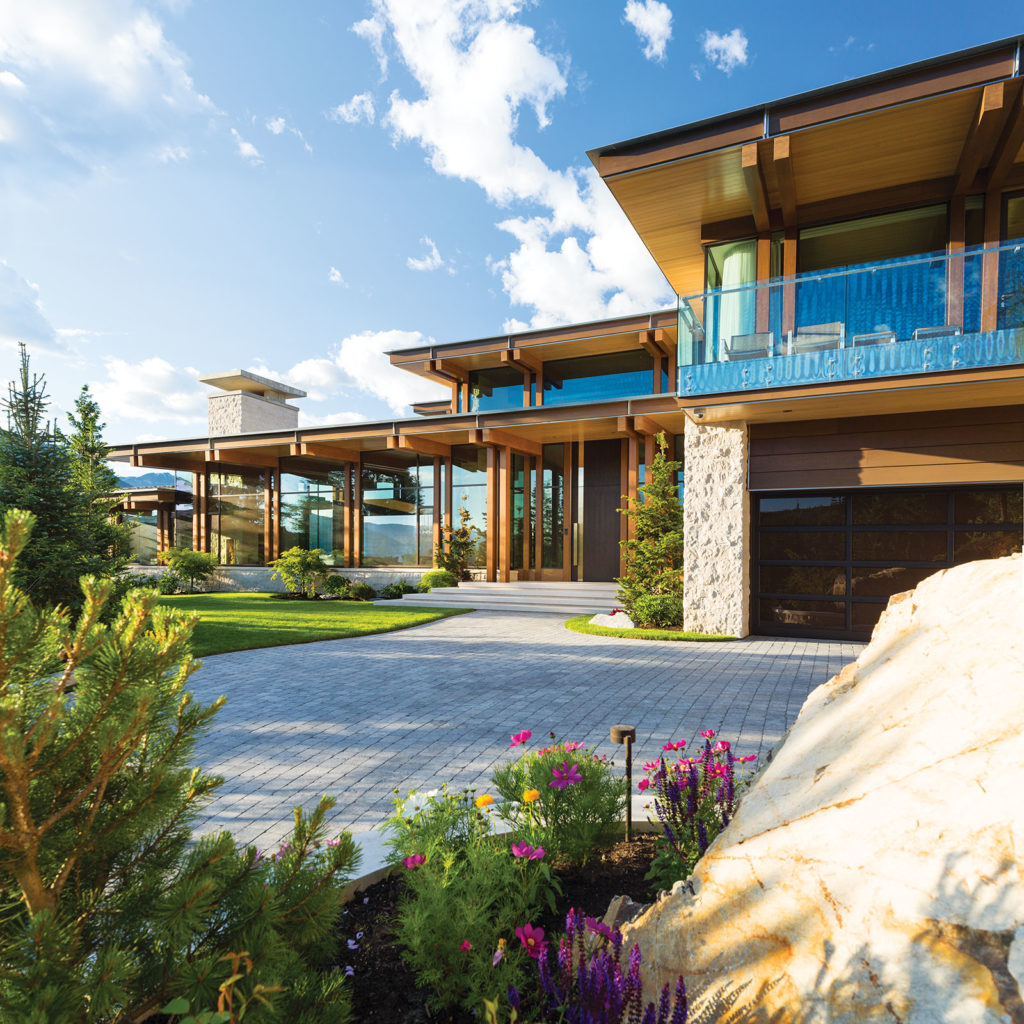
In recent years, Dynamic has seen a shift in its clients’ interests, specifically those living along the coast in the northeastern United States. Metal finishes—be it aluminum, stainless steel, or bronze—are trending up. In those oceanfront settings, according to Dynamic’s director of business development Martin Ross, the brand’s bronze-
The use of
Like so many specialists in the industry, Dynamic can make broad-paneled glass doors that hinge, fold, or lift and slide. However, the Canadian company is also adept at creating all-glass corner systems that feature two windows or doors that lock together without a structural corner post. The system requires that structural steel
Fleetwood Windows & Doors
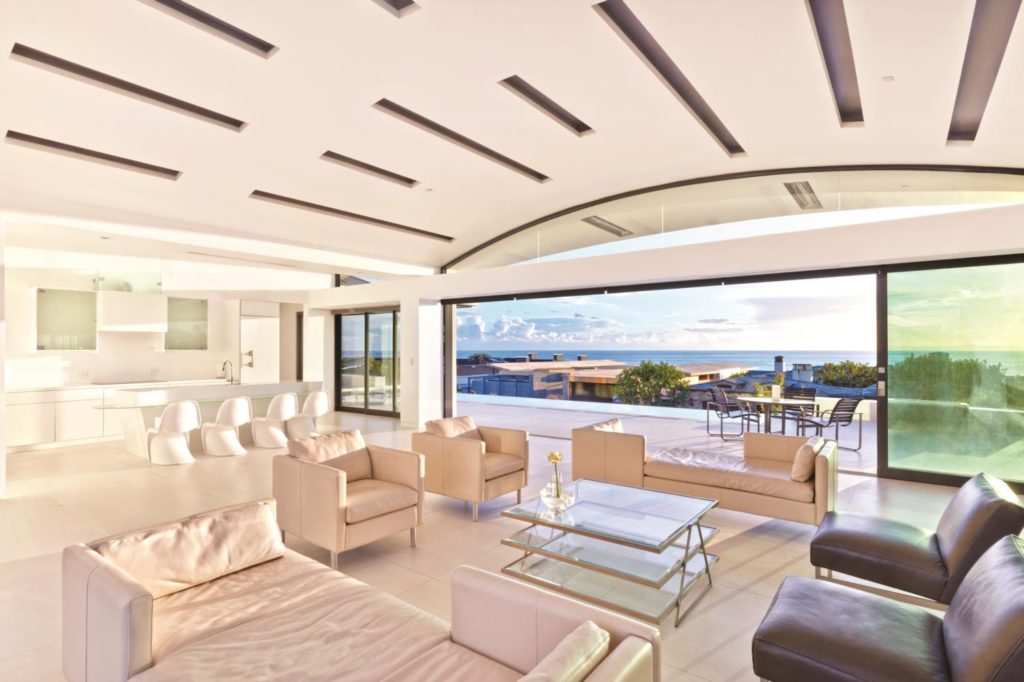
Since 1961, Fleetwood Windows & Doors has dedicated all of its engineering and design efforts, along with its manufacturing processes, to the luxury home market. According to Mark McCoy, the family-owned company’s chief operations officer, Fleetwood’s location in Southern California made that corporate mission statement an obvious strategy since the Greater Los Angeles area is “the epicenter of where people looked for and valued these products.”
Upon first glance, Fleetwood’s portfolio of hinged, folding, and sliding doors would seem to parallel the industry’s other high-end manufacturers; however, some important distinctions can be made. First, all of the company’s products are designed and crafted to thrive in diverse, oceanfront environments, which is why Fleetwood works primarily with aluminum. But the company doesn’t offer a lift-and-slide
According to McCoy, Fleetwood further distinguishes itself from the competition through its commitment to design and manufacture its own proprietary hardware. “Twenty-five years ago, I noticed that the items that frustrated our customers the most were the things they interfaced with—the handles, rollers, locking mechanisms—primarily the ergonomics of them and how they lasted in their environments. Those are the things that we targeted. We are fanatical about the details. We approach our work
LaCantina Doors
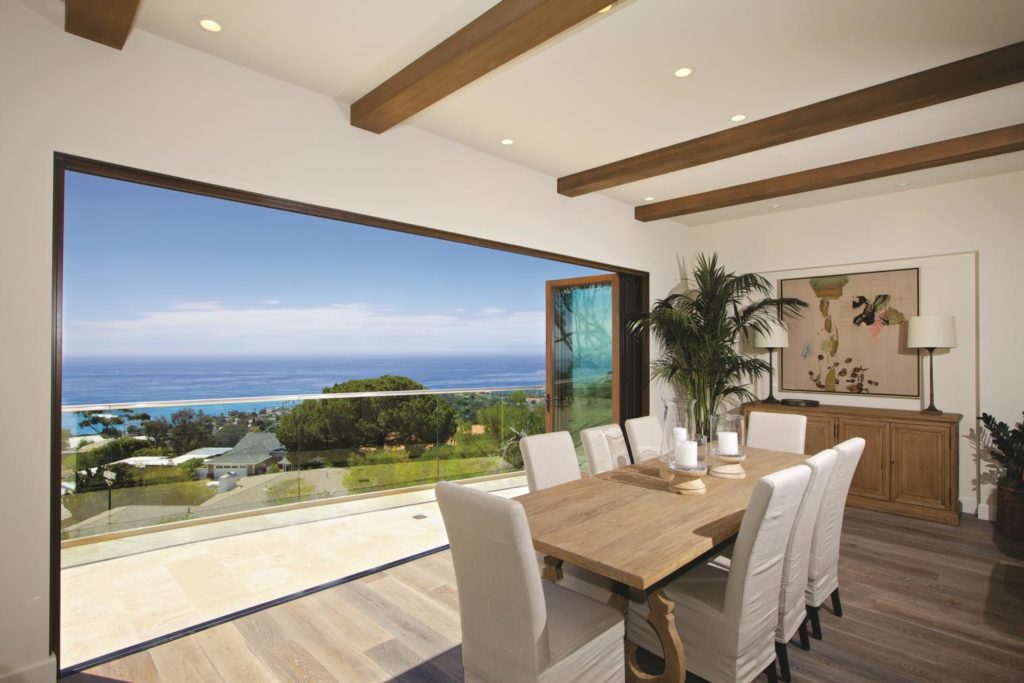
Steady growth has defined the story of LaCantina Doors since the company first opened its doors—pun intended—in 2003. Now in its fifth manufacturing facility, a 141,000-square-foot operation located in Oceanside, Calif., LaCantina continues to evolve and expand its suite of products, offering more frame and sill materials and delivering glass with greater thermal efficiencies. Although the brand is synonymous with folding doors, LaCantina also builds sliding doors and multi-slide systems, which stand out from many other offerings in that category thanks to their strength and symmetry—two features that typically define more expensive lift-and-slide systems.
While many of the companies spotlighted in this story emphasize their capabilities to work directly with architects, LaCantina has taken a different approach. The company features a variety of interactive videos aimed to educate homeowners and to guide them through the process of selecting the right door-and-window system that is right for them. These videos tackle all aspects of a project, including a home’s location, how the system will operate, its configuration, threshold, and its glass properties. “These systems are an investment and an emotional purchase,” says Lee Maughan, LaCantina’s general manager and vice president, “so consumers are getting very involved in the decision-making process.”
LaCantina’s understanding of marine environments, particularly the materials and designs that work best in them, also provides its customers with reassurance. “Our primary market is Southern California, which is as coastal as you can get,” says Maughan. “Most of our systems go into coastal homes, so they’re engineered with that in mind.”
NanaWall
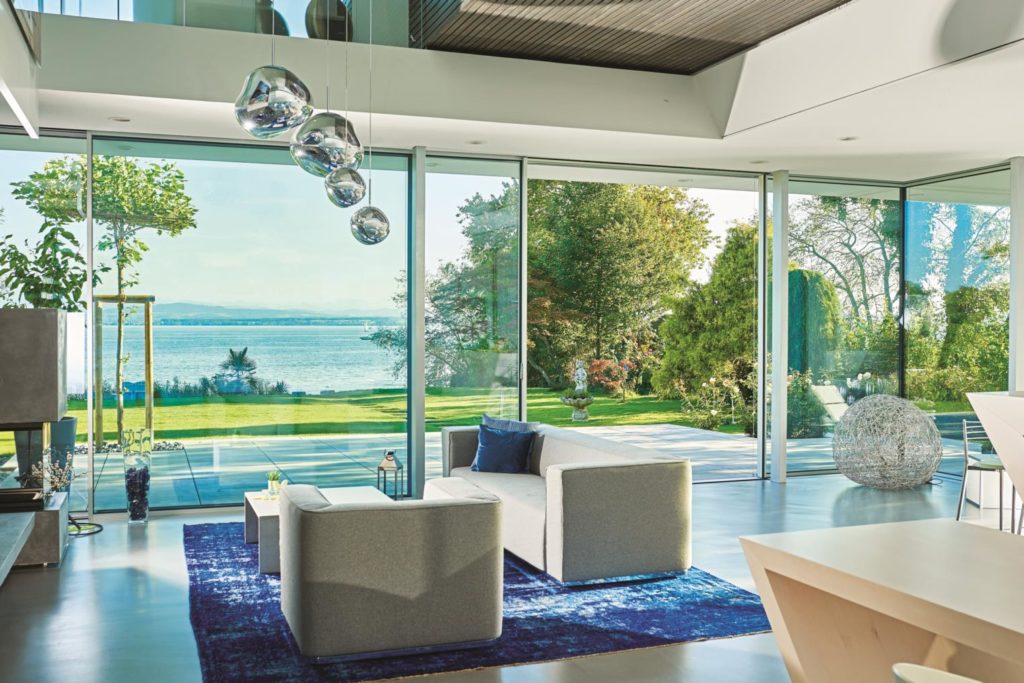
Founded in 1989, NanaWall creates sliding and folding glass wall systems, the latter of which rotate 180 degrees when folded, which creates an opening that offers zero obstructions. The Bay Area company manufactures its own sills—a reflection of its mission statement to create products that are all-inclusive and single-sourced—and it utilizes special, hand-built mounting systems. The system used in its aluminum-clad offering, for example, incorporates an evaporation chamber that provides a buffer between the wood and aluminum. This addresses the fact that wood and aluminum expand at different rates and it allows the wood to absorb and expel the humidity without compromising its shape.
The company’s Cero system, which is manufactured in Germany, features narrow aluminum frames (just over 1-inch thick), as well as recessed top and bottom tracks for sliding glass panels that can be as large as 10 feet wide and 13 feet high. “Each sheet of glass can weigh up to 1,000 pounds,” says Matt Thomas, Nana Wall Systems’ marketing manager. “But you can move the system with one hand.”
NanaWall’s CEO is a mechanical engineer, so he’s involved in many aspects of the process, including the early stages of project development. “He wants to know what architects are thinking and talks to them about their projects and what the dynamic challenges are,” Thomas explains. “Because all of our products are custom, we also have an internal design team and an architect on staff, if that’s necessary, to work with you and guide you to the best configuration of the system that’s needed.”
Panda Windows & Doors
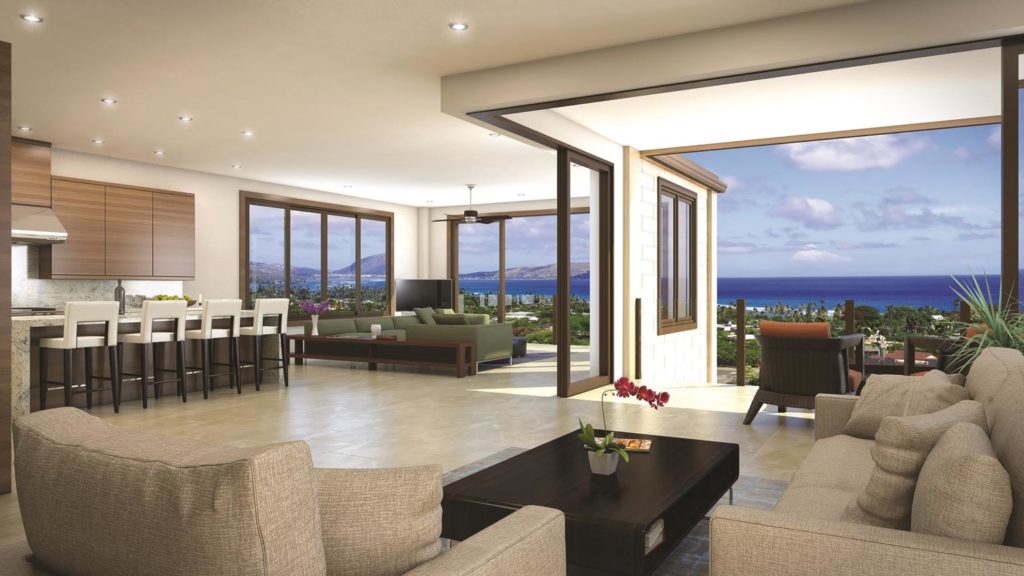
Originally founded in Israel, Panda Windows & Doors opened up shop in the United States in 1991 and has since committed to expanding its portfolio of folding, sliding, and pivoting window and door systems. From its headquarters in Las Vegas, Panda boasts a leadership in the marketplace, claiming to introduce more new designs each year than any other manufacturer in the industry. “It’s a niche market,” says
As Woods acknowledges, homeowners and architects are always seeking more glass, larger panels, and smaller frames—or no visible frames at all, if it’s possible. Thus far, Panda’s best response to those requests is the TS.XO), a new system that utilizes frames that are less than an inch wide and can support glass panels up to 250-square-feet in
Vitrocsa
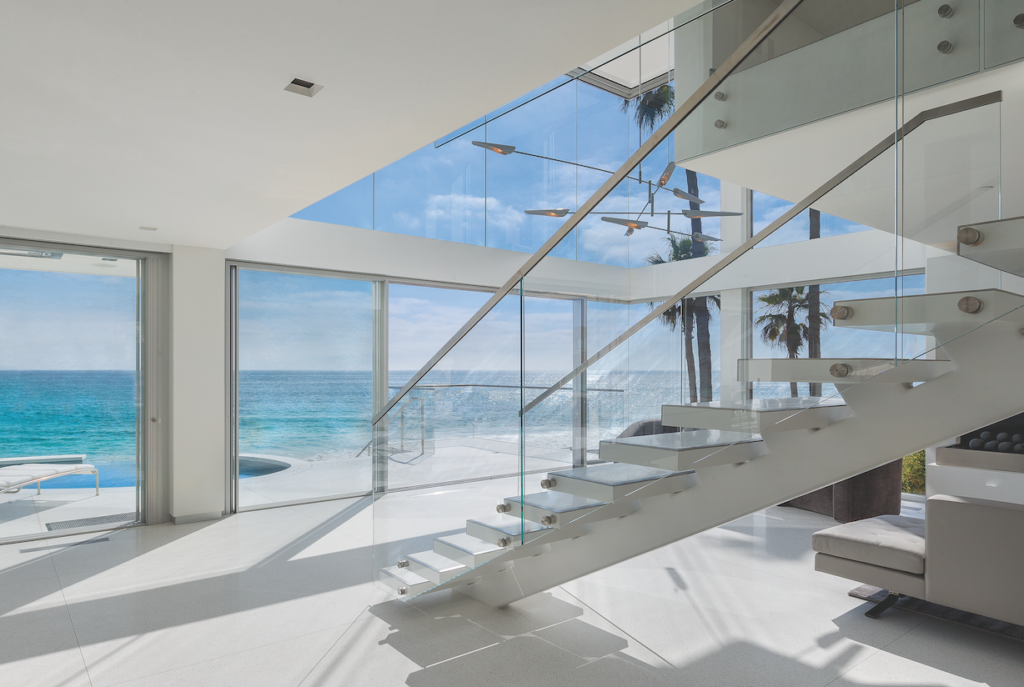
Based in Switzerland and founded in 1992 by Eric Joray, a mechanically inclined entrepreneur with a watchmaking background, Vitrocsa has built its reputation upon its manufacturing processes, utilizing mechanical watchmaking techniques in its componentry and machining each of those components to watchmaking standards. Whereas some of the companies spotlighted in this story build movable glass wall systems in a variety of framing materials, Vitrocsa works solely with marine-grade stainless steel and anodized aluminum, offering paint and powder-coating options.
Where Vitrocsa separates itself from the field is in the company’s commitment to inventing advanced (and patented) mechanical systems, like a 4×4 track system that is designed for large-panel systems (Vitrocsa can manufacture panels as tall as 18 feet), which utilizes a precision suspension system to ensure the panels are always positioned at a 90-degree angle from the floor and improves the ease of the sliding operation. The company also patented the Invisible Sill, a feature that hides the stainless-steel bearing track and sill under continuous flooring with minimal slots.
Although the company emphasizes advanced mechanical componentry, it also continues to introduce new architectural designs. In 2017, Vitrocsa launched a curved sliding system, and last year it unveiled a turntable corner system, which utilizes a roller principle and allows the glass panels to slide around corners.
